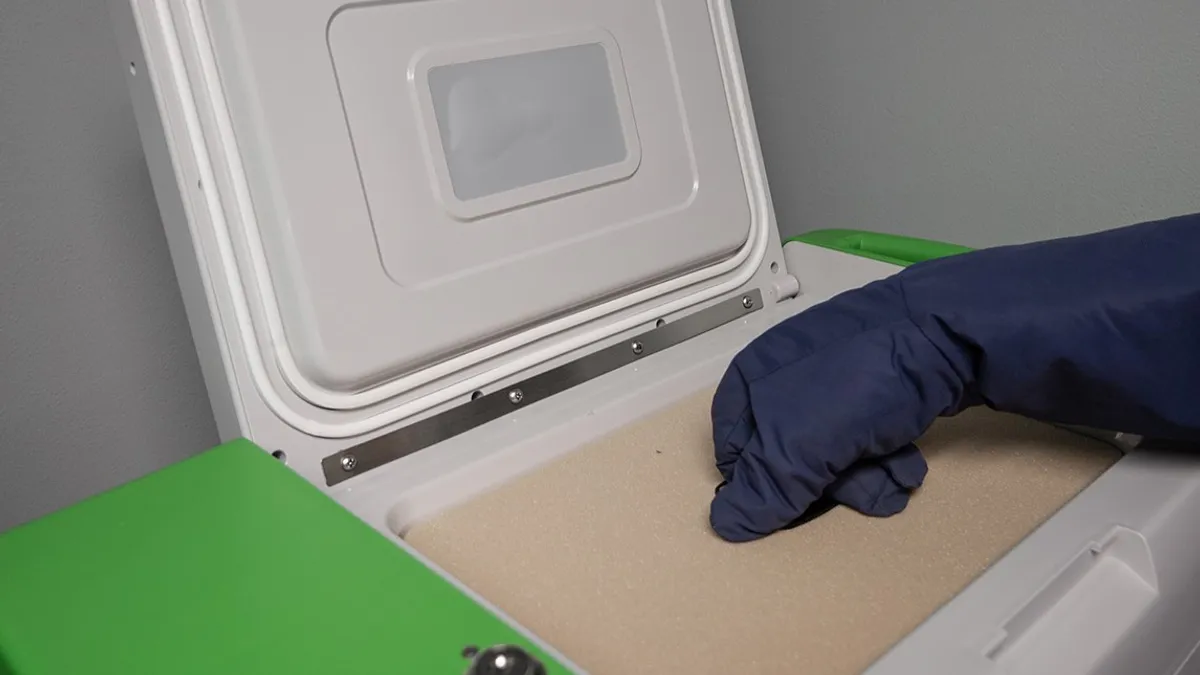Dive Brief:
- Sourcing for ultra-low-temperature freezers was up 522% YoY as of Monday, according to a Thomas Index Report update.
- The surge is a 464% increase over the organization's Q3 numbers, said Thomas President and CEO Tony Uphoff in the video report. The increase comes after the Food and Drug Administration granted emergency authorization for coronavirus vaccines by Pfizer and BioNTech last week.
- The report stated ULT freezers will be important in achieving cold temperature requirements during vaccine production, shipping and distribution
Dive Insight:
Now that vaccines have been approved and have started to be administered in the U.S., distribution is in full swing. As logistic companies including FedEx and UPS look to transport vaccines to distribution centers across the country, the need for freezers to maintain optimal temperatures are paramount, fueling the current surge for ULT freezers.
Stirling Ultracold, a supplier of portable freezers, has partnered with UPS to store vaccines in its freezers during transit.
This comes to bear especially for Pfizer's vaccine, which must be distributed at extremely cold temperatures. Federal officials found this may restrict its use to "centralized sites."
Pfizer has created a controlled temperature box to help during transport. And a stream of data will be sent to Operation Warp Speed headquarters to report temperature levels as shipments of the vaccine are transported.
"All that data streams into our command center, and we transmit that data to Operation Warp Speed," UPS President of Global Healthcare and Life Sciences Wes Wheeler said in a Senate hearing earlier this month. "So, we were all watching the packages all day long."
But elevated demand for cold-storage equipment pre-dated the FDA's authorization. Thermo Fisher Scientific, a producer of ULT freezers and other laboratory equipment, noted in an October earnings call that demand for its cold storage equipment was high.
"When you read about [how] some of the vaccines needed cold storage across the supply chain, we're getting very, very significant demand for those products," Marc Casper, the company's CEO, said on the call.
Demand for dry ice, which can be used to maintain cold temperatures for vaccine shipment, has also increased. Thomas Report Index reported in October a 185% YoY increase in Q3 from 2019 to 2020 and noted that dry ice is considered an essential part of pharmaceutical supply chains. Neither FexEx nor UPS expect dry ice shortages, according to congressional testimony earlier this month.
But Stirling Ultracold pointed out in a blog post last month that, while dry ice is inexpensive and very cold, there is no guarantee that it keeps "products thermally protected" at minus 78 degrees Celsius — the temperature of dry ice. The ULT freezer producer stated that demand for its products for healthcare operations will remain, as dry ice is not a long-term storage solution.













